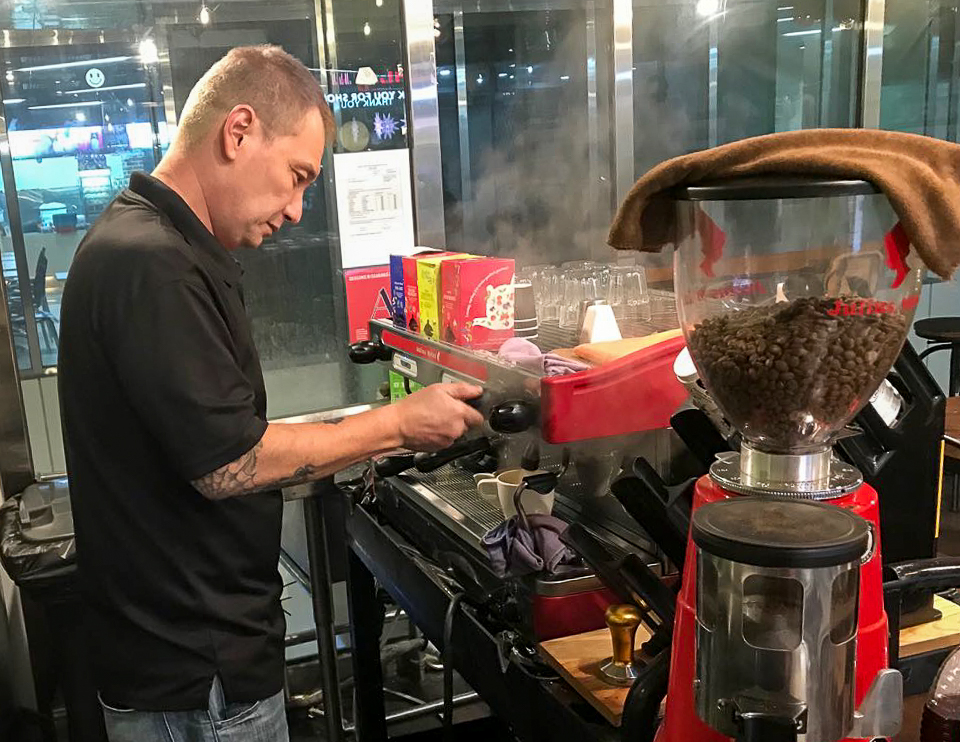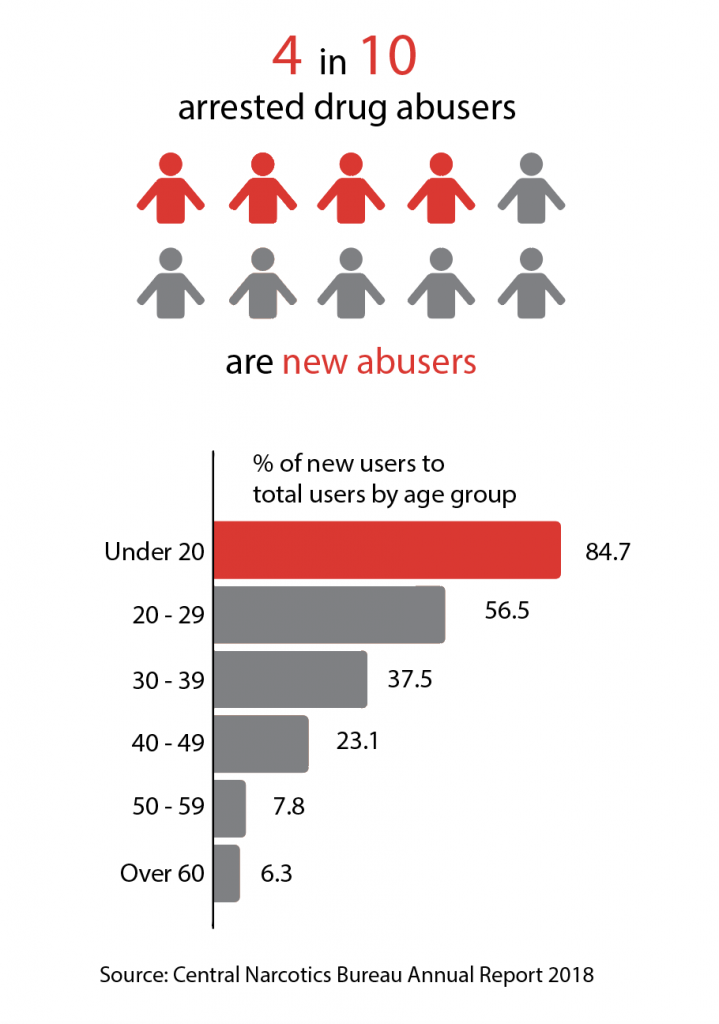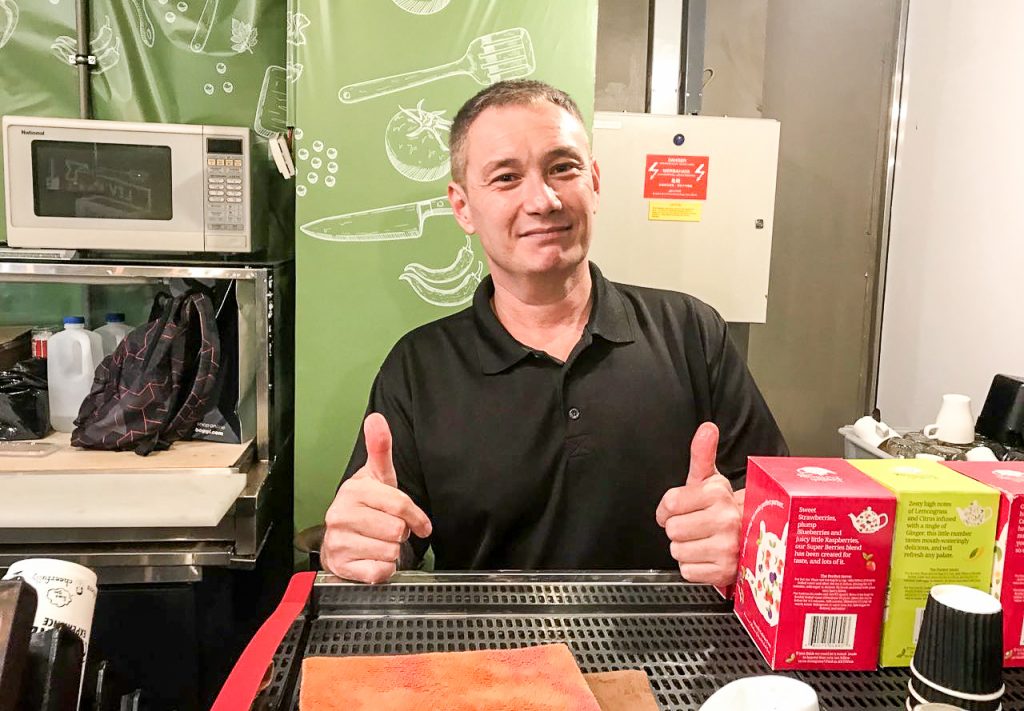
Mr Bruce Mathieu is the only child to his divorced parents. Growing up, he’s left to his own devices. When his mother was out at work, he often found himself having to fend off other family members who treated him like a “punching bag”.
To escape from the mess at home, he joined a gang at 13 years old, not knowing that his life was about to turn messier the moment he’s introduced to marijuana. It didn’t take long before his first taste of drugs became a full-blown addiction.
“And because I loved that high, I spent the next 30 years paying for that love of high,” said Mr Mathieu, who’s now 50 and works as a barista at social enterprise The Caffeine Experience.
According to the Central Narcotic Bureau’s (CNB) annual drug report, 3,438 drug abusers were arrested in 2018 – an increase of 11 per cent compared to 2017. Out of those arrested, 4 in 10 were new abusers. Close to two-thirds of the new abusers caught in 2018 were below 30 years old.

Among those below 20 years old, 305 out of 360 of them (84.7 per cent) were new offenders. Among those between 20 and 29 years old, 571 out of 1,010 of them (56.5 per cent) were caught for the first time.
Mr Mathieu was arrested and jailed for the first time when he was 23. Under the influence of drugs, he stole a tie he neither needed nor lacked the money to pay for.
This setback, however, didn’t put a stop to his addiction. “When you really want something, your mind has a way of lying to itself,” Mr Mathieu said, adding that he still craved drugs “big time” when he’s released.
As a result of his regular drug use, he felt he wasted the prime of his life. “From my early 20s to my mid-40s, I never really worked, fought a lot, stabbed people and assaulted the police. All because of drugs,” he said.
He was single the first 4 times he went in and out of jail. To him, every imprisonment was simply to “bide time” until he could party the next time.
But by the time he’s in jail the fifth time, he’s a husband and the father of his precious little girl.
He recalled how the family celebrated his daughter’s 4-year-old birthday in prison. Wearing a brand new dress, his daughter gleefully did a twirl to show off her outfit. Then, she sat down and basked in the joy as her parents sang her the birthday song.
When the song ended, she reached her arms out for her dad and said: “Dada carry.”
Sitting on the other side of the glass partition, Mr Mathieu wasn’t able to do so. She broke into tears, and that broke his heart.
“My daughter’s only request was for me to carry her. And yet I couldn’t accede to that request,” Mr Mathieu recalled. “It’s not like she wanted the moon and the stars.”
That was the turning point for him. Because he “missed her terribly”, he vowed never to touch drugs again so that he won’t be separated from his daughter.
Now a barista, Mr Mathieu always gives his best at work. He greets customers by name and remembers their orders by heart. He also lends a listening ear to customers who want to talk about their frustrations and troubles.
Besides, he’s also an active volunteer at Architects of Life, a social enterprise for youths-at-risk and ex-offenders. He ropes in his daughter in these activities too so that she would learn to care for others.

Mr Mathieu knows there are people who still believe recreational drugs are harmless.
“I would consider them gundu (silly). For they have been bought into the lie that Hollywood has portrayed about drugs.”
The Ministry of Home Affairs (MHA) has recently published findings which suggest that young respondents generally hold a more liberal view on drugs, especially cannabis. Among those aged 13 to 30, only 68 per cent find the consumption of cannabis harmful. The number is higher at 84 per cent among older respondents aged 30 and above.
This is certainly worrying to Mr Mathieu. “What if you’re like me? After trying drugs for the very first time, you absolutely love it?
“That means for the next 30 years, you’ll be in and out of prison. Is this the risk you are willing to take?”
